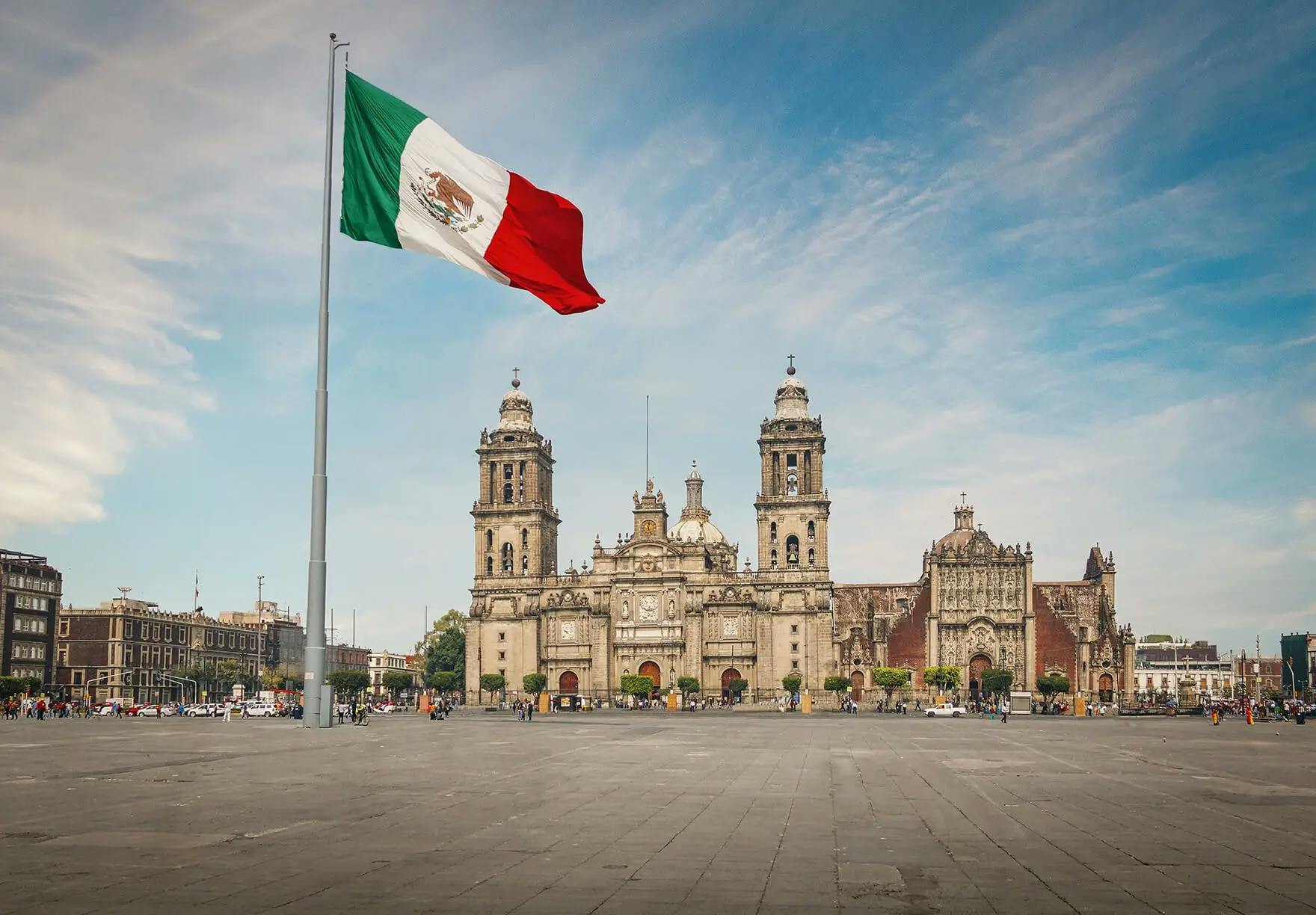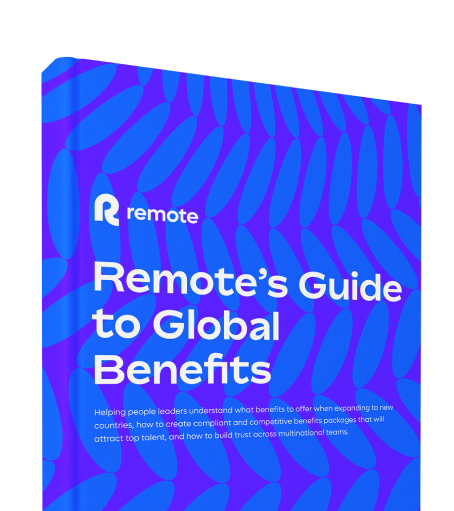
Product Updates — 7 min

In our guide on how to hire employees in Mexico, we provide a comprehensive overview of the major labor laws, legal requirements, and payroll processes in Mexico. This guide on employee benefits in Mexico goes into greater detail on statutory benefits and elective perks companies can offer.
Statutory benefits are benefits that companies are legally required to provide to employees. Businesses with employees in Mexico must offer all of these benefits to all full-time employees to avoid facing penalties and fines.
Because Mexico has robust requirements for statutory benefits, many companies choose not to provide any benefits beyond these, with a few notable exceptions. Statutory benefits in Mexico include:
Employers in Mexico must provide employees with a Christmas bonus, called Aguinaldo, in December of each year. This bonus amounts to at least 15 days’ worth of pay, though some employers provide 20 days’ pay to their employees. Employers must distribute the Christmas bonus in Mexico prior to December 20th so employees can use the funds for the holidays. Many companies choose to issue the bonus in the second week of December.
Full-time employees in Mexico are entitled to at least 12 days of paid time off after their first year of employment. Employees earn more paid time off every year on a schedule, hitting a cliff after five years.
One year of service: 12 days
Two years of service: 14 days
Three years of service: 16 days
Four years of service: 18 days
Five years of service: 20 days
After the sixth year of service the annual leave will be increased by 2 days every 5 years of service.
For example, an employee who works for a company in Mexico for 20 years must receive at least 26 days of PTO per year: 20 days after the first five years, two more days after the 10th year, two more days after the 15th year, and two more days after the 20th year.
Paid time off in Mexico typically does not carry over from year to year. Employees who quit or are fired are entitled to a payout of their unused vacation time, though.
In addition to the time itself, employees in Mexico receive a bonus when they take PTO. This bonus, called Prima, must be at least 25% of the employee’s pay in addition to the employee’s regular salary. The employer can pay this bonus when the employee takes the leave or in a lump sum at the end of the year.
Every year, companies in Mexico must distribute a 10% share of their profits to their employees. The deadline to make these payments is in May. Executives, officers, and other high-ranking employees do not receive a share of the 10%.
Profit distributions are split into two equal parts:
The first distribution is split equally among all workers at the company. This distribution accounts for the number of days worked by each employee in the year and does not consider employee wages.
The second distribution is also split among workers but considers both days worked and wages earned during the year.
Newly created companies are exempt from sharing profits in their first year of operation.
Employers in Mexico pay social security on wages and deduct social security contributions from employee paychecks, much the same way companies in the U.S. operate. In Mexico, though, these contributions cover all basic healthcare, so employers do not have to offer their own healthcare plans.
Overtime pay is Mexico changes depending on whether the employee works the day shift, the night shift, or a shift that extends into both day and night. In Mexico, the night shift extends from 8 p.m. to 6 a.m.
Day shift employees who work more than eight hours on any day or 48 hours in a week receive 200% pay for the extra hours worked. The 200% overtime rate goes into effect after seven hours in one day or 42 hours in one week for night shift workers. Workers who work split shifts receive overtime pay beginning at 7.5 hours or 45 hours per week.
After the first nine hours of overtime pay, employees receive 300% pay for all subsequent overtime hours worked. Employees who work on Sunday receive a 25% bonus regardless of how many hours they work, and overtime rules go into effect after eight hours. Employers in Mexico must give employees at least one day off per week.
In our guide on how to terminate an employee in Mexico, we cover three different types of severance pay. Workers who quit on their own are entitled to small severance packages including proportional payments of the Christmas bonus and unused PTO. Employees fired with cause also receive 12 days’ worth of salary per year worked at the company. Employees fired without cause receive hefty severance packages beginning at a minimum of three months’ salary plus additional compensation.
Social security and public healthcare in Mexico cover maternity and paternity leave. Mothers receive six weeks before the due date and six weeks after the birth as paid leave. Fathers are guaranteed just five days of parental leave after the birth of a child. Employers are not required to provide more than that which is paid for by the state.
Want to see a full breakdown of employment costs for new hires in Mexico? Check out our free Employee Cost Calculator tool.
Mexico’s statutory benefits cover a broad range of needs, but employers looking to attract top talent should consider offering additional perks on top of the legal minimums.
Common elective benefits in Mexico include:
Many employers in Mexico choose to provide employees with food vouchers. Although not technically a statutory benefit, food vouchers are a common elective benefit in Mexico. Food vouchers can be used at a number of grocery and general goods stores.
Although Mexico’s government provides health insurance for everyone in the country, the services provided are often not up to the same standard as private options. By offering supplemental private health insurance, employers can improve their ability to attract top talent. Private health insurance in Mexico provides access to better clinics and shorter wait times than public insurance.
Companies do not have to find their own plans, though. Many employers choose to provide employees with stipends or supplemental pay, which employees can use to select their own private health plans. This is how Remote helps companies provide their employees in Mexico with excellent medical coverage.
Many companies choose to provide life insurance for employees. Life insurance policies in Mexico pay a predetermined amount of money to an employee’s family in the event that employee dies while the policy is active, regardless of whether the death occurs at work.
Companies can keep a small amount of employee pay in reserve every month to be placed into a company-owned savings account. The amount withheld can never exceed 13% of an employee’s monthly salary. The company contributes an amount equal to the employee’s contribution, then releases the full amount back to the employee once per year.
Productivity bonuses are common all over the world, and Mexico is no exception. Productivity bonuses in Mexico provide incentives to employees to achieve certain goals in exchange for bonuses, often structured by tiers. These bonuses are common for knowledge workers in Mexico.
In addition to food vouchers, some companies also offer gasoline vouchers or fixed cash amounts to help employees get to work. In some cases, companies operate their own transportation services to pick up employees in the morning and take them home at the end of the day. For employees with cars, free parking is a highly desirable perk, as parking in certain parts of cities can exceed a thousand pesos a month.
Employers in Mexico sometimes offer loans to employees at low rates. These loans can include personal loans, payroll loans, mortgage loans, and automobile loans. Companies choosing to offer these services must be careful to comply with the stringent payroll rules in Mexico.
High-level salespeople, executives, general managers, and other well-paid employees in Mexico sometimes receive company cars. These cars can generally be used for personal purposes as well as work purposes. Company cars are kept in the name of the business, so in the event the employee leaves, the company retains ownership of the vehicle.
Companies in Mexico may elect to provide employees with cell phones and service plans. These phones are owned by the company, and the bills for service go directly to the company.
As is the case with cell phones, employers in Mexico can offer to pay for internet service for their employees. This perk has become more common as more companies have switched to remote work. As with cell phones, the bill goes directly to the employer and is in the employer’s name.

Do you have questions about how to offer benefits to your employees in Mexico? Are you interested in offering a benefit not listed here?
Remote can help. We own our own local legal entity in Mexico, which means we can provide your employees in Mexico with a first-class experience no matter where your business is headquartered. Reach out to us today to see how our Mexico payroll, benefits, taxes, and compliance solution can help your company grow.
Remote's global HR experts share practical advice for building a locally relevant and globally compliant benefits program to help you attract and keep the world's best talent.

Subscribe to receive the latest
Remote blog posts and updates in your inbox.

Product Updates — 7 min

Global Payroll — 2 min

Minimum Wage & Compensation — 7 min

Newsroom — 5 min